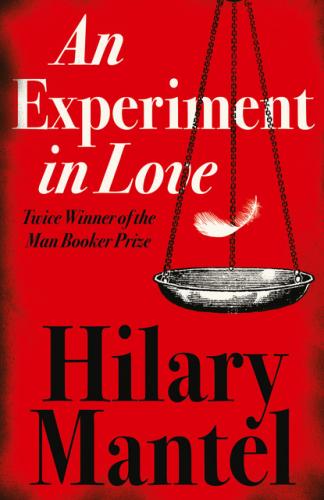Karina and her mother were standing in the kitchen. Karina was already belted into her gabardine overcoat, a checked wool scarf tied under her chin. Her mother was not yet dressed to go out but she was wearing thick woollen stockings and a buttoned-up cardigan, with a shawl draped over it. I had never seen a shawl, except in books; you got them in fairy-tales. Karina’s mother hadn’t a witch face, more the face of a godmother: dough-coloured, unformed, not definitely anything at all. Her eyes were like black grapes, which are not black of course: a dull mobile sheen, purplish, in soft folds of flesh. My mother called Karina’s mother ‘Mary’ when she met her in the street, but I did not think this could possibly be her name.
Karina’s mother had both hands full. In her right hand she had a ham sandwich made with thick white bread; she was holding it out to her daughter. Karina’s hands were wrapped around her mother’s hand, and she was gnawing at the bread, her head dipping with each bite, and her jaw moving like some greedy animal’s: chewing away, while the scarf’s bunchy knot bobbed up and down under her chin. In her other hand, Karina’s mother held a banana. It was already half-peeled, ready for immediate use. As Karina took the last gulp of ham sandwich she transferred it swiftly to her right hand. Karina closed her own hands again around her mother’s, holding the fruit steady; the banana seemed to vanish in three big bites.
Karina straightened up and wiped her hands on her coat. Her mother said something to her in another language. Karina didn’t answer. She didn’t even look at her mother, acknowledge that she had spoken. Her mother picked up a fat parcel from the kitchen cabinet, wrapped in greaseproof paper. She thrust it into Karina’s school-bag. Carefully, she fastened Karina’s coat right up to the neck and twitched her head-scarf forward so that it jutted out, protecting her daughter’s flushed cheeks; then she held up Karina’s mittens for her to plunge her hands inside. She patted her, on the shoulders, chest, arms, patted her as if she wanted to make sure she was solid all through. Then Karina was ready to seize the day.
I had watched her mother’s face while she fed her. She looked hungry, and as if all the food in the world could never be enough.
At eight years old, I wear my hair in ringlets, fat tubes that you can put your finger into. Each night at seven o’clock my mother brushes my hair and then combs it and then rakes it again with the steel comb, in case insects have bred since the night before. If I am free from vermin she gets out the curl rags. These are white ropes of cloth. She unrolls and separates them, then picks up the comb again and divides my hair into strands. At the top of each strand she knots a rope. Then round and round we go, tighter and tighter wrapping, myself delirious with pain and rage and she with set face, mummifying my hair. I cry out that I want my hair cut off, short like other people’s and pinned back with a big black kirby grip or a pink plastic slide, and she utters from between her teeth that I don’t know what I want. When she has wrapped to the bottom of a rope she ties another big knot, like a fist, like a knuckle bone. When she has finished my whole head, the bound hair springs away from my skull, stiff and white in its casing, as if I had grown legs out of my head: as if I were an alien from the planet Zog, with these swaying white skeleton limbs, knobbled and rickety and shining in the dusk.
When I climb into bed I pray my night prayers. When I put my head on the pillow one set of knots digs into my skull and the other set of knots rolls under my ribs and spine. I toss and turn and come to rest face down, breathing wetly into the sheets. Perhaps Karina is right, perhaps my hair is stealing my strength. I sleep and have dreams.
Next morning the ropes are unknotted and my hair explodes around me. I slide my fingers into the ringlets and pretend I have grown hair on my digits and that I am a werewolf.
One day I see Karina standing alone on the corner of Eliza Street, her eyes vacant and her mouth moving around what looks like a cold sausage. I cross over to the other side of the street. I hope she doesn’t see me, but she does.
Конец ознакомительного фрагмента.
Текст предоставлен ООО «ЛитРес».
Прочитайте эту книгу целиком, купив полную легальную версию на ЛитРес.
Безопасно оплатить книгу можно банковской картой Visa, MasterCard, Maestro, со счета мобильного телефона, с платежного терминала, в салоне МТС или Связной, через PayPal, WebMoney, Яндекс.Деньги, QIWI Кошелек, бонусными картами или другим удобным Вам способом.
